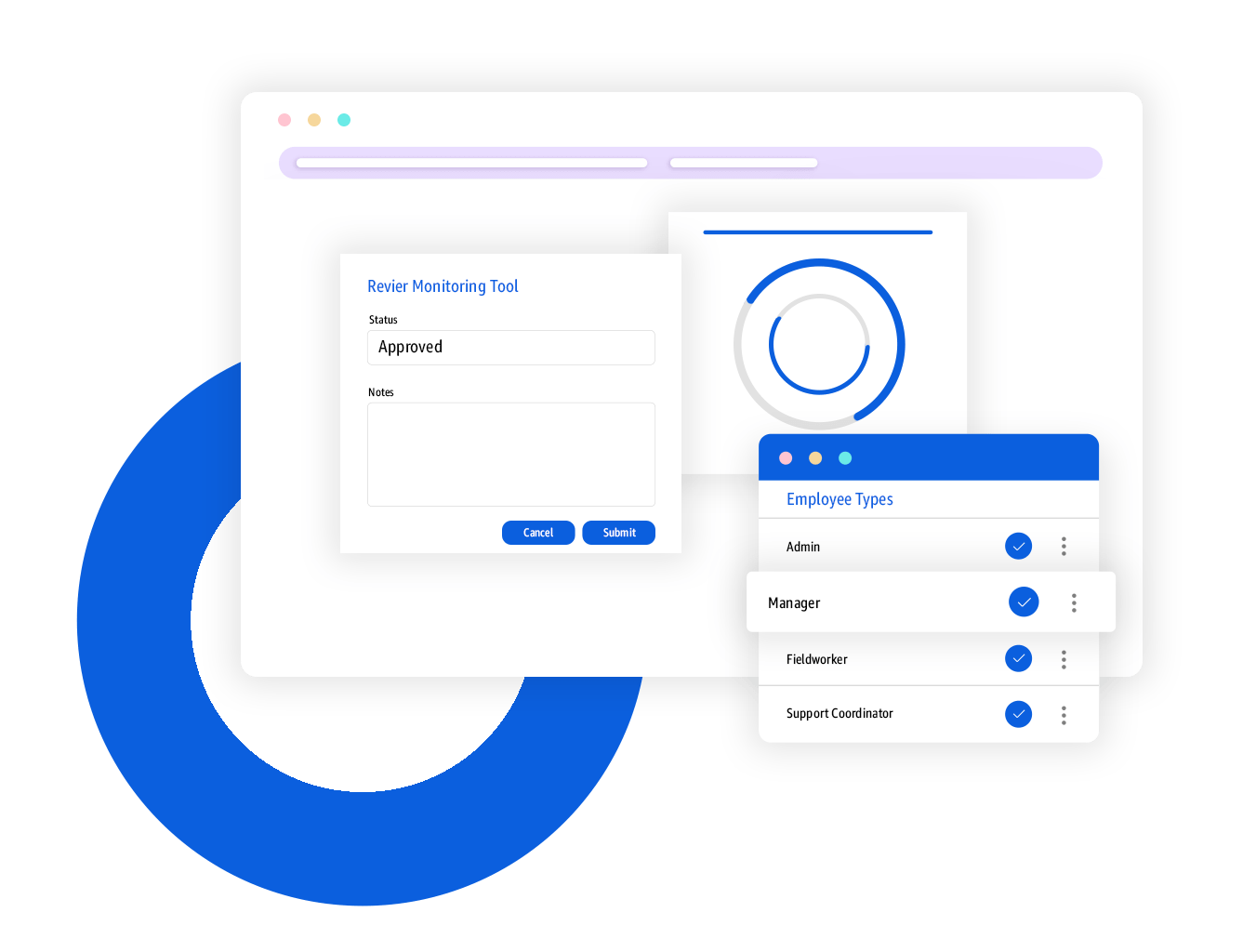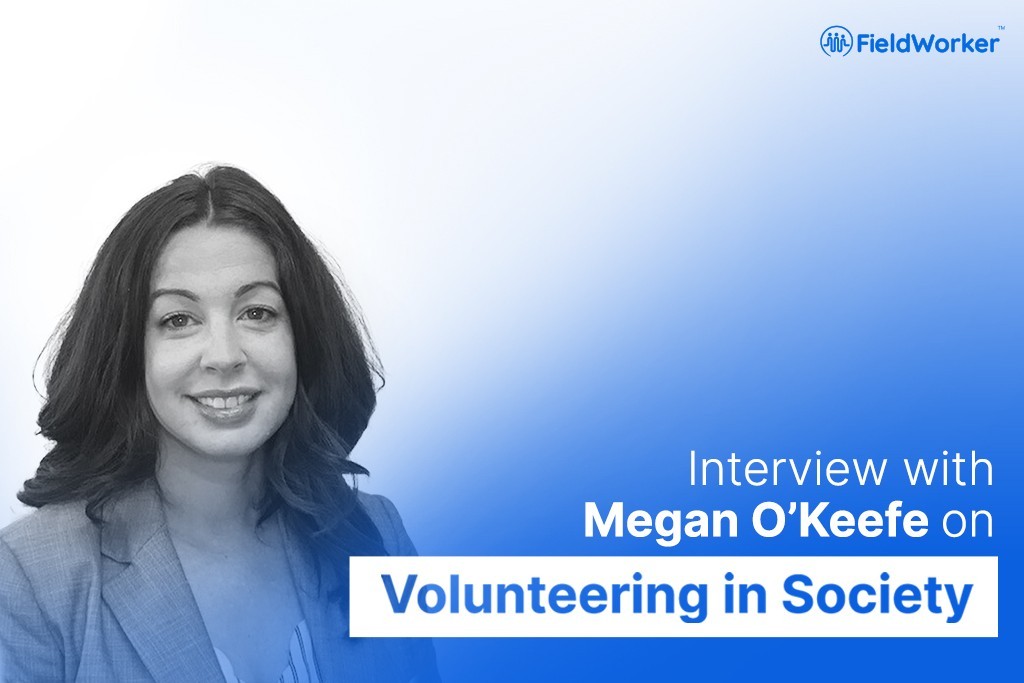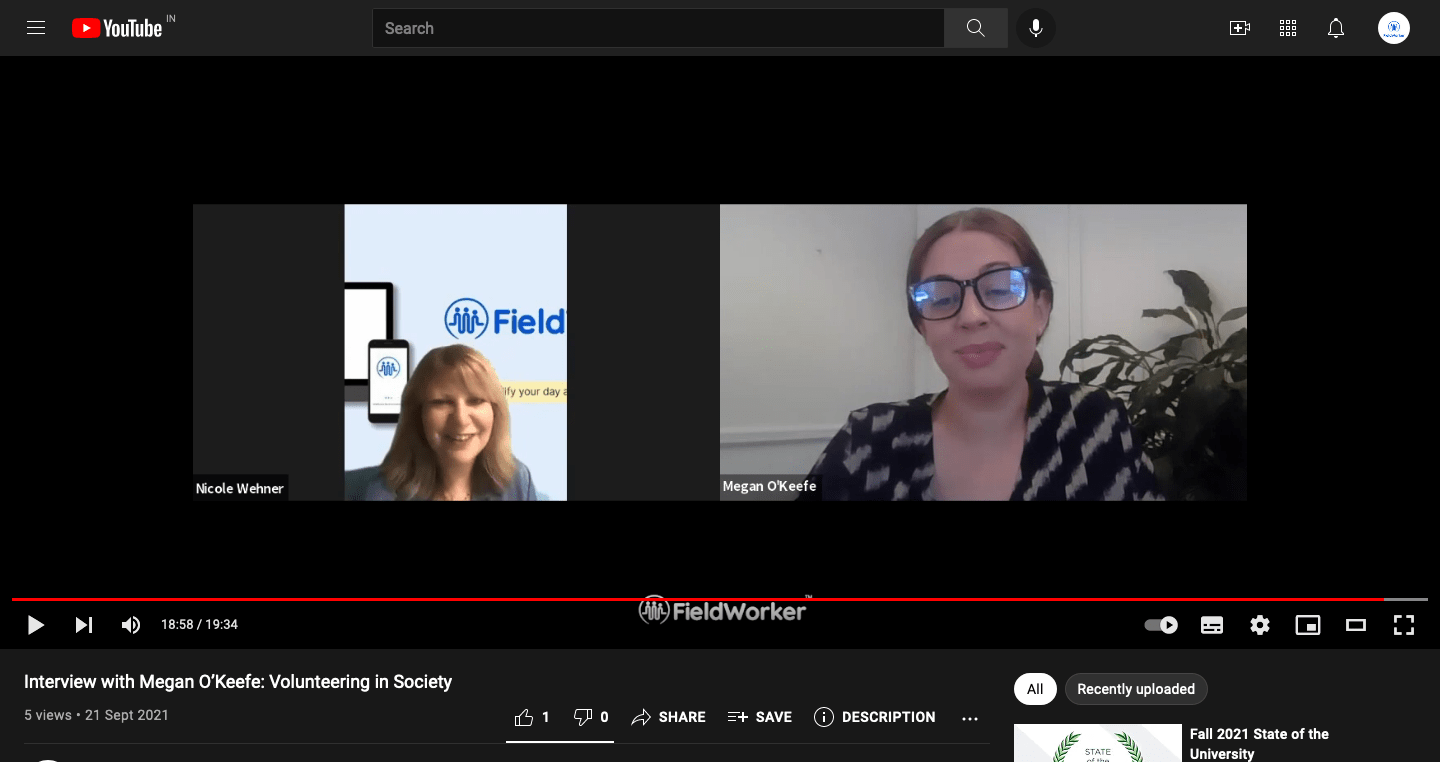Megan O’Keefe is the Executive Director at Caregiver Volunteers, an organization doing some amazing work & positively impacting the lives of the elderly and special-needs individuals in Ocean & Monmouth counties, New Jersey.
Our Director of Marketing Nicole Wehner recently had a chance to sit down with Megan and found out more about what they do.
We are pleased to share the interview below describing the wonderful & transformative work that Megan & Caregiver Volunteers are doing.
You can also watch the full interview here.
Could you give us a little bit about your background and what are your personal motivations for working in social and community care?
I’m the Executive Director at Caregiver Volunteers of Central Jersey and I took this post in February of 2020. I had known I wanted to work in a position where I was helping people, that’s always been my drive and motivation and everything else was secondary. So, non-profit work for me seemed to be the obvious choice.
I’ve spent most of my working life in social service and non-profit development, so that’s how I found my way here. Here I have the unique opportunity, every day of going to work, taking these important phone calls, and knowing that, if we weren’t here, our patients wouldn’t get that help.
It just feels good to know that even if it’s been a crazy and hectic and stressful day, I know that we’ve helped people somehow – even just as simple as giving them a ride to the doctor’s appointment.
This only happens because of groups like ours and our staff. I knew I wanted to be a part of it.
Tell us a little more about what Caregiver Volunteers do?
We provide support services to seniors who are 60 years old and above and no longer driving. And we do this all through our wonderful volunteers who do things like take them to the doctors, go grocery shopping, friendly visits, pet therapy and more. We also offer respite care to family caregivers who may have a loved one with a chronic illness, Alzheimer’s or some other form of dementia.
In the past 18 months, we’ve changed a little bit in the way we provide those services. But all in all, we’re still keeping true to that core of trying to help seniors who are living at home with limited resources and support networks to be a part of their community.
That’s what all of our programs are geared towards here, to help people remain connected.
Since, FieldWorker is a technology company, and we help organizations like yours in the health & social services areas, I have to ask; How do you use technology and how does technology help you in your day to day?
I’m a firm believer in technology – and if used correctly, it can really change the game, especially for nonprofits. When we look at our resources, we are so limited, so making strategic investments in how we manage our programs is something that benefits us in the long run.
When it boils down to our services, we do have dedicated staff, but it is our volunteers who do all the work. So we’re really connectors while managing information. All that data that connects people is kind of what we do in our office day to day.
Technology helps automate things and mobilize more volunteers at a time, reaching more people with wise investments and cut-downs that helps our staff member’s do more with the little we have. If you speak to anyone who’s working in nonprofits, it’s a given you’re expected to do a lot with nothing.
Once you invest in technology like some of the benefits FieldWorker provides, it makes tech so much more accessible, especially, in this digital age where we need to connect and then get essential information and use it. That’s where it makes it all possible. We’ve been able to see how it’s helped impact our community footprint – making volunteering even more accessible, it’s really a win-win for everybody!
What do you think the growth opportunities are for your organization in the next few years?
In the next few years because of recent events like the ongoing public health crisis, we have found that a lot of our seniors have very limited support networks. Their goal is to be able to continue to age in their home, around the people and things that they love. But, if you’re no longer driving or you’re isolated, that makes it really hard.
We’ve seen just in the past year the need increase for even just social companionship. A lot of these seniors that we work with aren’t so digitally connected; so they can’t just hop on a zoom call, also because nothing replaces that actual connection, which is so important to everyone’s well-being, senior or not.
I think that there’s definitely going to be a lot more need for people to have services in their homes and I do think it is going to be a really big challenge, especially over the next couple of years, since we’re all trying to find what the new normal is before then going out and being part of the community again. But I’m confident that we’ll get there.
What would be your advice to somebody who’s looking for volunteer opportunities?
For right now, the best way is via our website. We hold informational sessions every week while having a chance to talk with a real live person. We ask and answer questions like, is this something that’s right for me? What’s it all about? What would it take? We also check if you are outside our area, and I always encourage everyone to volunteer even a little bit.
There are other sites that you can go on like Volunteer Match that will show what could be a match for you depending on your preferences. So I just encourage anyone to get involved, be proactive and see what there is. You could be surprised by what could be right up your alley.
If there’s a message you’d like to share with our audience. What would that be?
Our message and focus is that we deal with connections. Even if you’re not part of our organization, everyone has been isolated in some way, shape or form, especially if they’re a senior and living alone. So we always try to reach out and connect.You never know how powerful a phone call is just to check in, catch up and see how people are doing. It’s important that you take that five minutes out of your day, because what we see is, it changes people’s lives, and that’s something that you can do really easily right from your own home or right in your own neighborhood. Now more than ever, we need each other.


